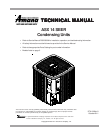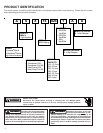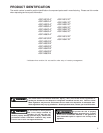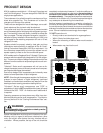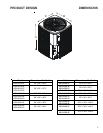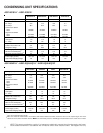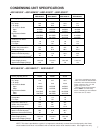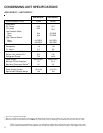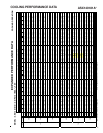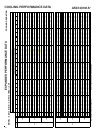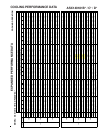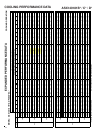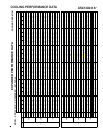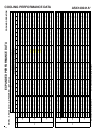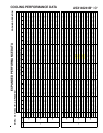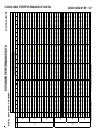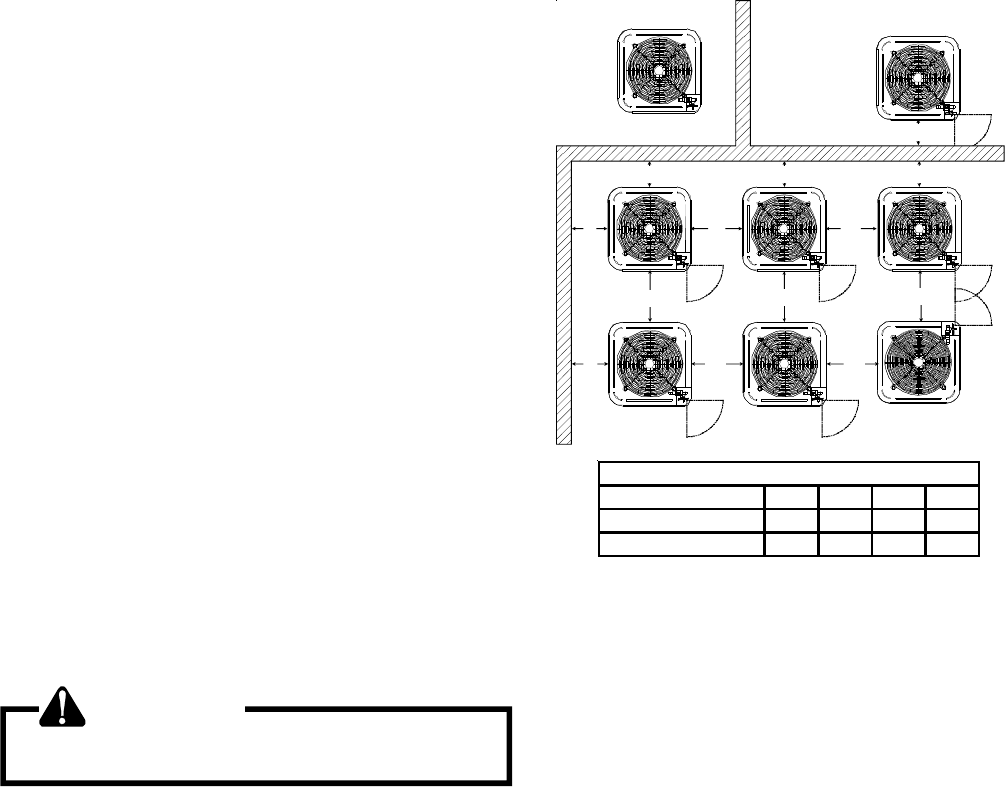
PRODUCT DESIGN
4
ASX14 models are available in 1 1/2 through 5 ton sizes and
use R-410A refrigerant. They are designed for 208/230 volt
single phase applications.
The condenser air is pulled through the condenser coil by a
direct drive propeller fan. This condenser air is then dis-
charged out of the top of the cabinet.
These units are designed for free air discharge, so no addi-
tional resistance like duct work shall be attached.
The suction and liquid line connections on present models
are of the sweat type for field piping with refrigerant type cop-
per. Front seating valves are factory installed to accept the
field run copper. The total refrigerant charge for a normal in-
stallation is factory installed in the condensing unit. ASX units
are charged for the matching evaporator coil and a 15 foot
refrigerant line set.
Systems should be properly sized by heat gain and loss
calculations made according to methods of the Air Condi-
tioning Contractors Association (ACCA) or equivalent. It is
the contractors responsibility to ensure the system has ad-
equate capacity to heat or cool the conditioned space.
ASX models use the Copeland Scroll "Ultratech" Series com-
pressors which are specifically designed for R-410A refriger-
ant. There are a number of design characteristics which are
different from the traditional reciprocating and/or scroll com-
pressors.
"Ultratech" Series scroll compressors will not have a dis-
charge thermostat, some of the early model scroll compres-
sors required discharge thermostats.
Due to their design Scroll compressors are inherently more
tolerant of small quantities of liquid refrigerant.
NOTE: Even though the compressor section of a Scroll com-
pressor is more tolerant of liquid refrigerant, continued
floodback or flooded start conditions may wash oil from the
bearing surfaces causing premature bearing failure.
"Ultratech" Series scroll compressors use "POE" or
polyolester oil which is NOT compatible with mineral oil based
lubricants like 3GS. "POE" oil must be used if additional oil
is required.
Operating pressures and amp draws may differ from stan-
dard reciprocating and/or scroll compressors. This informa-
tion may be found in the "Cooling Performance Data" sec-
tion.
WARNING
To avoid possible injury, explosion or death, practice
safe handling of refrigerants.
Special consideration must be given to location of the con-
densing unit(s) in regard to structures, obstructions, other
units, and any/all other factors that may interfere with air
circulation. Where possible, the top of the unit should be
completely unobstructed; however, if vertical conditions re-
quire placement beneath an obstruction there should be a
minimum of 60 inches between the top of the unit and
the obstruction(s). The specified dimensions meet require-
ments for air circulation only. Consult all appropriate regula-
tory codes prior to determining final clearances.
Another important consideration in selecting a location for
the unit(s) is the angle to obstructions. Either side adjacent
the valves can be placed toward the structure provided the
side away from the structure maintains minimum service clear-
ance. Corner installations are strongly discouraged.
DO NOT locate the unit:
– Directly under a vent termination for a gas appliance.
– Within 3 feet of a clothes dryer vent.
– Where the refreezing of defrost water would create a
hazard.
– Where water may rise into the unit.
Model Type A B C AA
Residential
10" 10" 18" 20"
Light Commercial 12" 12" 18" 24"
Minimum Airflow Clearance
OK!
OK!
AA AAA
A
CC
C
C
OK!
OK!
OK!
OK!
NOT
RECOMMENDED
AA
AA
AA
AA
AA
B B B
B



